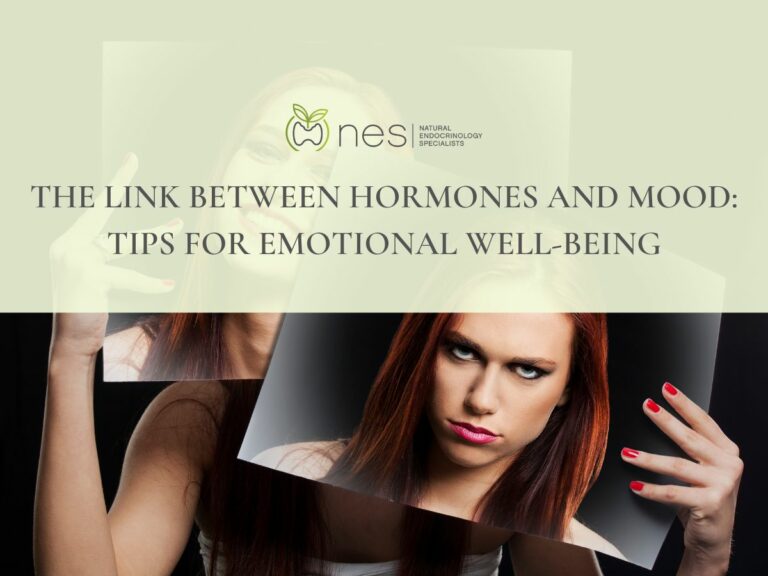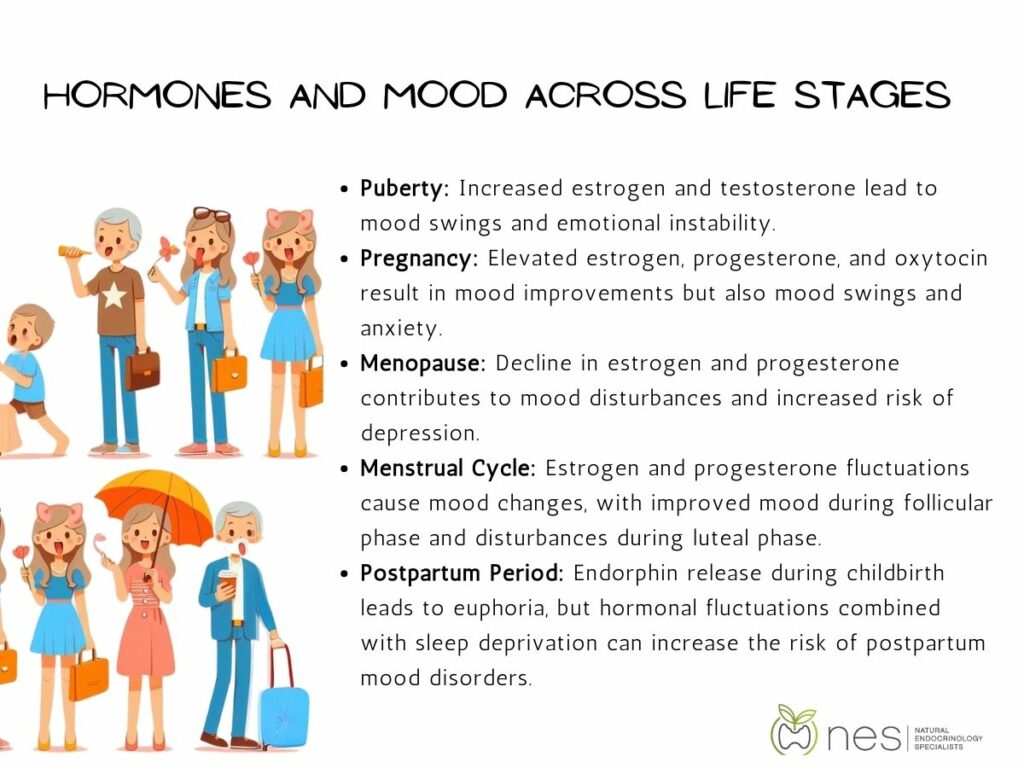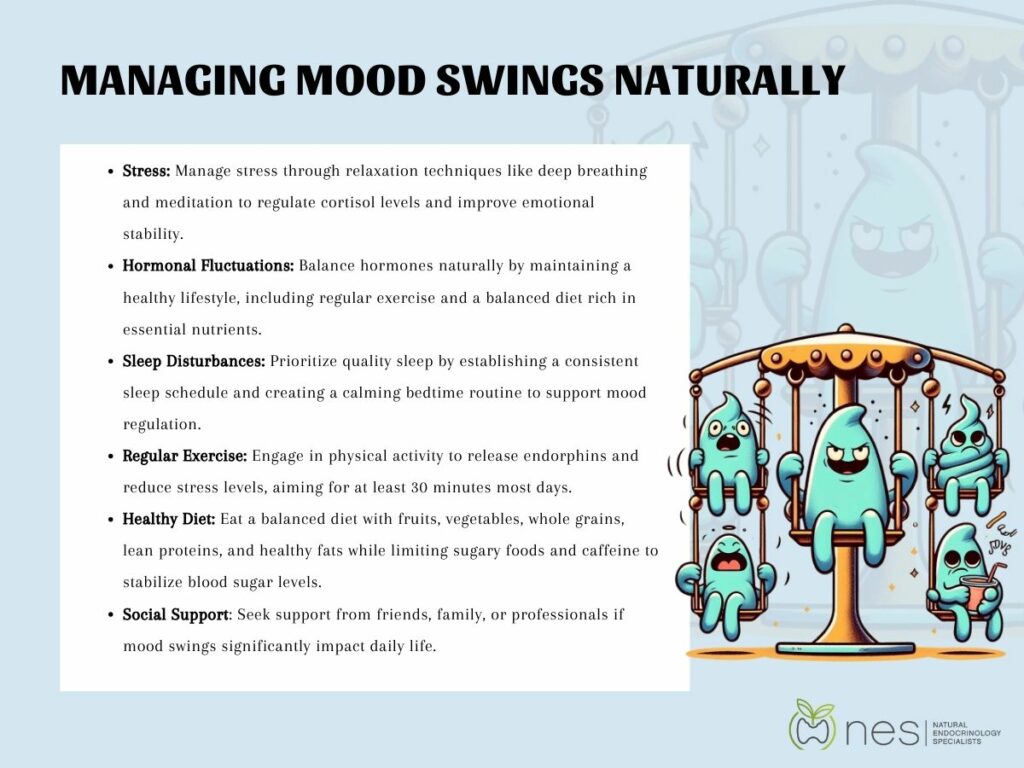Have you ever wondered why some days you feel on top of the world while on others, you just can't shake off that feeling of gloom? The answer might lie within your own body, specifically in the intricate dance of hormones that regulate your emotions. What is the link between hormones and mood? In this […]

Have you ever wondered why some days you feel on top of the world while on others, you just can't shake off that feeling of gloom? The answer might lie within your own body, specifically in the intricate dance of hormones that regulate your emotions.
What is the link between hormones and mood? In this blog, we will delve into the fascinating connection between hormones and mood, uncovering how these chemical messengers wield a powerful influence over our emotional well-being.
Feeling good isn't just a state of mind; it's also influenced by the chemicals in our brains. These chemicals, known as neurotransmitters or hormones, play a crucial role in regulating our mood, motivation, and overall sense of well-being.
Among them, four key hormones stand out for their significant impact on our happiness and satisfaction: dopamine, serotonin, endorphins, and oxytocin. Let's explore each of them in detail:
Dopamine is often referred to as the "feel-good" hormone because of its association with pleasure, reward, and motivation.
Functions:
Serotonin is known as the "happiness hormone" due to its influence on mood, well-being, and overall happiness.
Functions:
Endorphins are the body's natural painkillers and stress relievers, often referred to as "feel-good" hormones.
Functions:
Oxytocin is often called the "love hormone" or "bonding hormone" because of its impact on social bonding and positive emotions.
Functions:
Hormones play a crucial role in regulating mood across various life stages, from puberty to menopause. Fluctuations in hormone levels can significantly impact mood, leading to emotional changes and even mood disorders.
Here's a breakdown of how hormones affect mood at different stages of life:

Puberty marks the onset of sexual maturity and is characterized by significant hormonal changes, including increased production of sex hormones like estrogen and testosterone. These hormonal shifts can lead to mood swings, irritability, and emotional instability as adolescents navigate the transition to adulthood.
Pregnancy involves dramatic hormonal changes to support fetal development and prepare the body for childbirth. Fluctuations in hormones such as estrogen, progesterone, and oxytocin can impact mood, leading to symptoms like mood swings, anxiety, and depression.
Menopause signifies the end of the reproductive years and is associated with a decline in estrogen and progesterone levels. These hormonal changes can contribute to mood disturbances, including irritability, mood swings, and increased risk of depression and anxiety.
Fluctuations in estrogen and progesterone levels govern the menstrual cycle. These hormones play a crucial role in regulating mood throughout the menstrual cycle.
During the follicular phase (first half of the cycle), estrogen levels rise, leading to improved mood, increased energy, and enhanced cognitive function.
In contrast, the luteal phase (second half of the cycle) is characterized by a rise in progesterone levels, which can lead to mood changes such as irritability, anxiety, and sadness in some individuals.
Pregnancy involves complex hormonal changes to support fetal growth and development. Hormones such as estrogen, progesterone, and oxytocin play key roles in maintaining pregnancy and preparing the body for childbirth.
Elevated levels of estrogen and progesterone during pregnancy can contribute to mood improvements, increased emotional sensitivity, and enhanced bonding with the fetus.
However, hormonal fluctuations during pregnancy can also lead to mood swings, anxiety, and depression, especially in individuals with a history of mood disorders.
The postpartum period, also known as the "fourth trimester," is characterized by significant hormonal changes following childbirth. Endorphins, often referred to as "feel-good" hormones, are released during childbirth and breastfeeding, contributing to a sense of euphoria and well-being known as the "baby blues."
However, hormonal fluctuations combined with sleep deprivation, physical recovery, and the demands of caring for a newborn can increase the risk of postpartum mood disorders, such as postpartum depression and anxiety.
Table: Hormonal Changes and Mood Across Life Stages
| Life Stage | Hormonal Changes | Impact on Mood |
| Puberty | Increased estrogen, testosterone | Mood swings, irritability, emotional instability |
| Pregnancy | Elevated estrogen, progesterone, oxytocin | Mood improvements, emotional sensitivity, mood swings |
| Menopause | Decline in estrogen, progesterone | Mood disturbances, irritability, increased risk of depression |
| Menstrual Cycle | Fluctuations in estrogen, progesterone | Mood changes throughout the cycle: improved mood during the follicular phase, mood disturbances during luteal phase |
| Postpartum Period | Endorphin release, hormonal fluctuations | Euphoria (baby blues), increased risk of postpartum mood disorders |
Understanding the interplay between hormones and mood across different life stages is essential for promoting mental health and well-being. While hormonal fluctuations are a natural part of life, individuals experiencing significant mood disturbances should seek support from healthcare professionals to address any underlying issues and receive appropriate treatment.
Mood swings are a common occurrence for many people and can be influenced by various factors such as stress, hormonal fluctuations, and sleep disturbances.

Stress: High levels of stress can contribute to mood swings by triggering the release of cortisol, the body's primary stress hormone. Chronic stress can disrupt emotional regulation and lead to heightened irritability and mood instability.
Hormonal Fluctuations: Hormonal changes, such as those experienced during puberty, menstruation, pregnancy, and menopause, can significantly impact mood. Fluctuations in estrogen, progesterone, testosterone, and other hormones can contribute to mood swings and emotional instability.
Sleep Disturbances: Lack of quality sleep or disrupted sleep patterns can disrupt the body's natural rhythm and affect mood regulation. Sleep deprivation can exacerbate mood swings and increase susceptibility to irritability and emotional fluctuations.
While mood swings can be challenging to deal with, there are several natural strategies individuals can employ to help regulate their emotions and promote a more stable mood. Let's explore some tips for managing mood swings naturally through lifestyle changes:
Understanding the link between hormones and mood can empower us to take control of our emotional well-being. Our hormones play a crucial role in regulating how we feel, from the highs of happiness to the lows of mood swings. By recognizing the impact of hormones like dopamine, serotonin, endorphins, and oxytocin, we can implement practical strategies to nurture our mental health naturally.
From puberty to menopause, hormonal fluctuations are a natural part of life that can affect our mood in various ways. By embracing lifestyle changes such as regular exercise, a balanced diet, stress management techniques, quality sleep, and seeking social support, we can navigate these changes more effectively.
Remember, managing mood swings takes time and patience. Consistently incorporating these strategies into your daily routine can significantly improve your emotional well-being. And if you struggle, don't hesitate to reach out for professional support. With a holistic approach, we can unlock the secrets to a happier, more balanced life.

Acupuncture Session - $189.00
Acupuncture, Package of 4 - $636.00
Female Pellet Insertion Package - $518.00
Male Pellet Insertion Package - $744.00